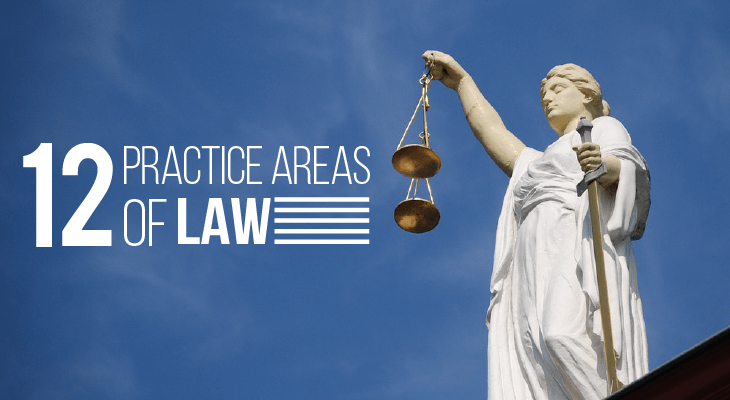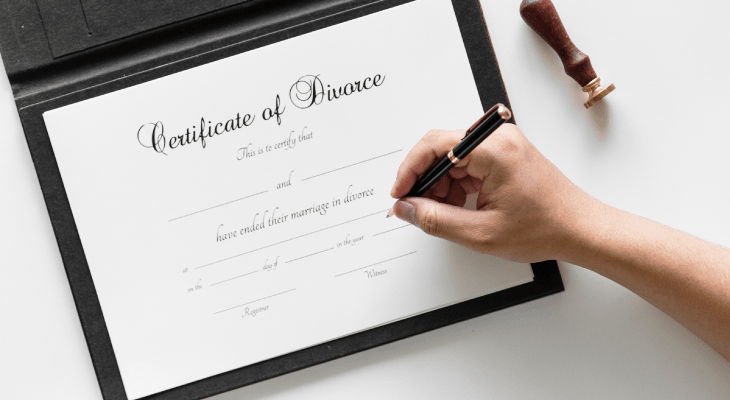12 Practice Areas of Law You Can Specialise In
Itching to don that robe and strut into our Malaysian courts? If law is your calling, here are 12 practice areas in the field that might pique your interest.
Updated 01 Jul 2019

There’s no doubt that a Law Degree is an incredibly demanding course, what with the voluminous amount of case law, unforgiving assignments and backbreaking exams.
Despite its killer reputation, the vast and wondrous realm of law promises an abundance of career choices, each with a unique set of tasks and responsibilities. In this article, we’re revealing 12 popular areas of practice you could specialise in as a lawyer. Let’s get into it!
#1. Criminal law

This wildly popular branch of law deals with acts that violate the laws of the land and the necessary punishments for breaching the law.
In this branch of law, you could be involved as a public prosecutor or defence lawyer in criminal litigation (the process of going to trial in a criminal court). This means you will either represent the state and prosecute a person accused of committing a crime (public prosecutor), or you will defend the accused person instead (defence lawyer).
As a lawyer in this field, you could deal with a variety of cases ranging from small offences such as petty theft to more serious crimes such as murder, rape and corruption. Your time will be largely spent interviewing clients and witnesses, examining crime scenes, preparing submissions for court and partaking in copious amounts of legal research to strengthen your case.
#2. Conveyancing

This branch of law refers to the transfer of legal rights from one party to another during the buying and selling of property.
Unlike litigation, this area of legal practice is highly desk-bound. Your responsibilities include carrying out background checks on potential vendors and buyers, drafting sale and purchase agreements and preparing legal documents to ensure that the transfer of property is smooth and legally compliant.
#3. Employment and industrial law

Employment law typically covers cases involving employer and employee relations as well as employee’s workplace and trade union rights.
As a lawyer specialising in employment law, you will review employee contracts and benefits, settle disputes between employers and employees (e.g. unfair treatment, wrongful dismissal) and advise employers on how to handle restructuring and retrenchment exercises.
#4. Corporate law

As the name suggests, corporate law is the law that governs the rights, relations and conduct of corporations.
This field of law involves a wide range of corporate matters, such as the incorporation of companies, director and shareholder rights, and corporate transactions (e.g. initial public offering, mergers and acquisitions, company restructuring).
As a corporate lawyer in Malaysia, you will rarely be involved in courtroom litigation. Instead, your responsibilities include drafting and reviewing contracts and commercial documents and providing advice on corporate transactions to protect the company’s interest.

#5. Family law

Family law is the “branch of law that deals with family relations including divorce, adoption, paternity, custody and support”.
Most family lawyers represent clients in divorce proceedings and oversee issues such as division of assets, child custody and payment of maintenance.
As a family lawyer, you will spend much of your time meeting clients to mediate and resolve disputes, as well as arguing cases in court. You must be ready to work odd hours and constantly be prepared for unpredictable events that may unfold between your clients and their family members. This is an emotionally challenging role as you will need to navigate incredibly personal and sometimes messy disputes between family members.
#6. Intellectual property (IP) law

This field of law protects the creations of the human mind, such as inventions, literary texts, artistic works, designs as well as names and images used in business.
In Malaysia, IP law protects patents, trademarks and copyright. An IP lawyer engages in IP litigation, advises clients on IP-related agreements and evaluates inventions to determine their patentability.
While a Master’s Degree is not a requirement to enter the field, specialist knowledge in this area of law could be an added advantage for when you enter the workforce.
Apply for university with EduAdvisor
Secure scholarships and more when you apply to any of our 100+ partner universities.
Start now#7. Human rights law

This branch of law prioritises the protection of human rights and refers to legal action taken by citizens who may not be directly involved in the matter in question, but are representing the interest of society at large.
In Malaysia, human rights cases are generally initiated to institute investigations into deaths during police custody, challenge racial, religious and gender inequality issues in the workplace and uphold the rights of the Orang Asli over customary land. Lawyers who specialise in this area of law typically work for non-governmental organisations (NGOs) and represent parties from minority and disadvantaged groups.
As a human rights lawyer, you will have to do in-depth research to prepare for your cases, stay ahead of new policies and legal decisions and constantly be on standby to offer legal advice during times of crisis.
#8. Banking and finance law

Lawyers who specialise in this complex field advise in a wide range of banking and financial matters. In Malaysia, firms who specialise in banking and finance typically represent local and international banks, credit companies, Islamic financiers and money lending institutions.
If you decide to specialise in banking and finance law, your work will most likely consist of advising financial institutions on loan structures and securities, assist in raising funds for companies through bank financing, debt restructuring or debt capital markets, as well as aiding in conventional and Islamic financial transactions.
While specialist knowledge is not necessary for you to practise this field of law, a background in banking and finance could be helpful as you enter the workforce.
#9. Trusts, wills and probate

This area of practice has to do with the distribution of a deceased person’s property and the management of their assets following their death.
As an estate and trust lawyer, you will assist in the drafting of wills (a legal document expressing a person’s dying wishes), oversee the distribution of assets to a deceased person’s beneficiaries in accordance with the will, ensure that the client’s wishes are carried out accordingly and assist in the creation of trusts where necessary.
#10. Bankruptcy and insolvency

Bankruptcy and insolvency refers to legal procedures initiated where individuals or businesses cannot pay their debts and seek to have the debts discharged or reorganised by the courts.
If engaged in this field, your exact role will depend on whether you represent the creditor (usually a bank who lends money) or the debtor (the person who owes the money).
If you are working for creditors, you will advise your clients on how to recover their money, evaluate the debtor’s assets and lead negotiations with debtors or insolvent companies.
On the other hand, if you are a lawyer who represents debtors, you will advise your clients on how to navigate bankruptcy or insolvency proceedings that may involve repossession of assets and travel bans. You might also be required to carry out financial restructuring and assist clients in the repayment of their debts.

#11. Medical negligence

Lawyers involved in medical negligence or malpractice litigate cases involving the “poor performance of a physician, dentist and other medical professionals” that has caused injury to a patient. Examples of misconduct include surgical errors, misdiagnoses and unreasonable delay in treatment.
If you are a lawyer who practises in medical negligence, you will either represent the patient who has suffered injury (plaintiff), the doctor who treated the patient (the defendant) or the insurance company that protects the healthcare professional or hospital from lawsuits.
In preparation for cases like this, you will need to pore over medical reports, organise medical examinations to obtain an independent assessment of the plaintiff’s injuries, research case law and prepare submissions for trial.
While a Master’s Degree is not compulsory, specialist knowledge in this field would help you stand out as a valuable addition to law firms who practise in medical negligence.
#12. Personal injury and motor claims

Personal injury law is also known as tort law, which is the invasion of a person’s legal right resulting in injury. The aim of a personal injury claim is to obtain compensation for the injury suffered as a result of the perpetrator’s actions.
The most common cases dealt with by personal injury lawyers are accident cases involving collisions between motor vehicles as these accidents can cause severe bodily injury and sometimes death.
If you work as a personal injury claims lawyer, you can expect to spend most of your time drafting pleadings, writing legal opinions for clients, interviewing witnesses, researching case law, preparing for trial and most often, spearheading negotiations for out-of-court settlements.
These areas of law are by no means an exhaustive list of specialisations within the field. But don’t worry! You won’t have to decide on your area of specialisation till after you enter the workforce. This means you’ll have plenty of time to do research and even dabble in a few different areas during your internship or pupillage before you decide where your calling lies.






